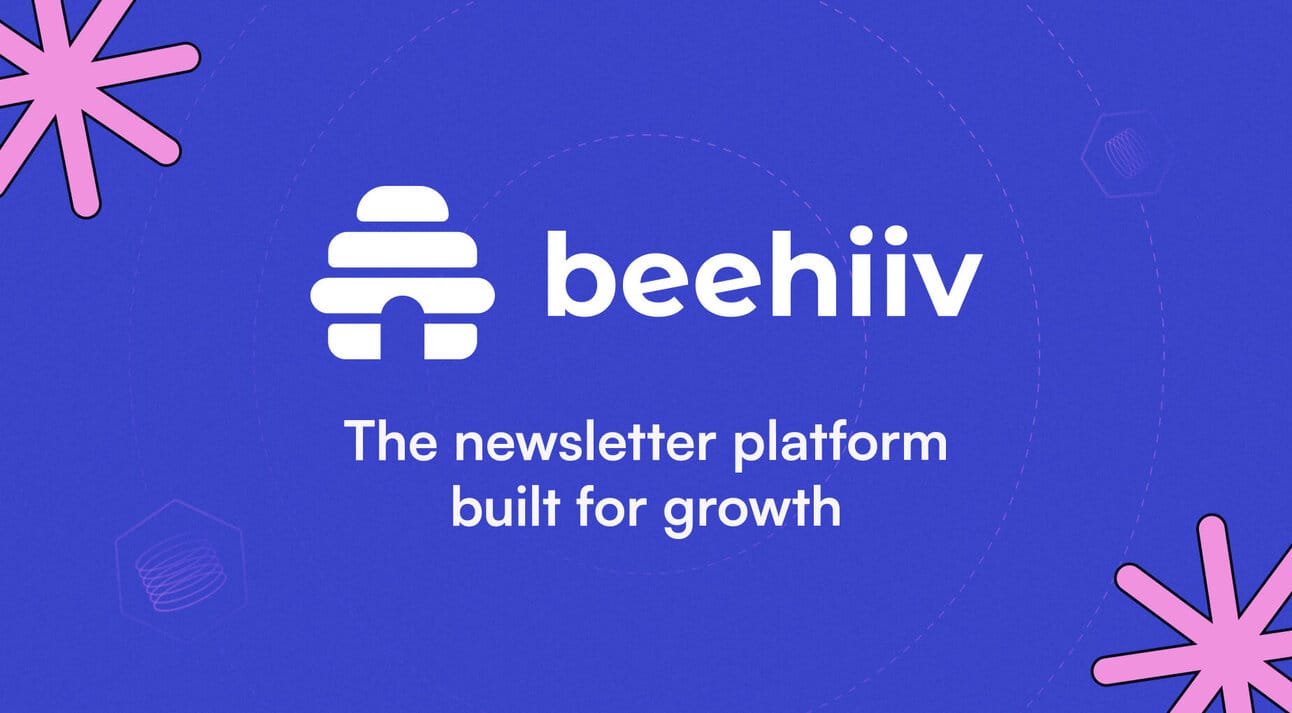
Welcome to this edition of Loop!
To kick off your week, we’ve rounded-up the most important technology and AI updates that you should know about.
HIGHLIGHTS
ChatGPT’s new memory feature
GitHub’s AI Agent platform for developers
Why Samsung’s operating profit jumped by 930%
… and much more
Let's jump in!


1. Microsoft shifts to prioritise security over everything else, including product launches
Satya Nadella has announced a major overhaul of the company's security practices, with it now a top priority for all employees.
In a memo to Microsoft staff, the CEO emphasised that they should prioritise security above all else - even if they have to delay new features or discontinue support for legacy systems.
The move is in response to a series of high-profile attacks on Microsoft's systems, as well as criticism from the US Cyber Safety Review Board, which labelled the company's security culture as "inadequate".
Some of these cyber-attacks were focused on their Exchange servers, cloud platform, and even the email accounts of senior leadership.
It’s pretty common for tech companies to get into these cycles of prioritising product launches over security, before then having to slow down and re-focus.
This is even more problematic when there’s tight deadlines and a manager’s bonus is linked to a product release. To tackle this, Microsoft’s leadership team will now have security objectives that are linked to their compensation - in the hope it will re-centivise them to improve overall security.

2. ChatGPT now has "Memory"
The company has introduced a new "Memory" feature for ChatGPT Plus users, which means the AI model can try to remember information across conversations.
I put some emphasis on try, since these models won’t always be able to recall the information you need - it’s just down to how these models work. Regardless, this is definitely a step in the right direction.
For the last year, enterprises have been using similar memory features within their own tools - so it’s great to see that the general public can utilise this too.
All you have to do is tell ChatGPT what it should remember or forget. There’s a lot of interesting ways this could be used.
Maybe you want to give ChatGPT some facts about you, like your name or interests. Or maybe you want ChatGPT to respond in a specific tone of voice.
You should be aware that OpenAI could use this data and train new models. If you don’t want that to happen, you will have to opt-out within your account settings.
It’s a bit strange how this isn’t enabled by default for the public, given there’s a high risk that users will upload sensitive information.

3. Tesla lays off almost everyone working on Superchargers
In a surprising move, Elon Musk has laid off around 500 employees from Tesla’s Supercharger division.
The timing of these layoffs is strange, as Tesla was close to establishing its vehicle charging plug as the standard in North America - after competitors agreed to support it.
Musk has claimed that the reduced team will mostly focus on maintaining the current network, rather than building new Supercharger locations. Before these layoffs, Tesla had accepted $17 million in federal grants to build more EV charging infrastructure.
While Tesla has seen profits fall by over 55%, the Supercharger network was one of the biggest draws for consumers. Their superior charging infrastructure is a good reason to pick Tesla over other brands.
But Tesla is now struggling with a fall in demand, as Musk continues to alienate his core customer base. There’s no doubt that his antics on X, which used to be called Twitter, have spread and impacted the car company too.
For as long as that continues, the company’s prospects for future growth do look pretty bleak.

4. Amazon completely overhauls their AI coding assistant
CodeWhisperer has been rebranded, with it now known as Q Developer, and has much broader features than the previous tool.
Q is now able to transform code from one language into another, be fine-tuned on your codebase, and can use Agents to autonomously complete tasks.
The Agents feature is particularly interesting, as they can analyse the codebase, create plans for solving a task, write the code, then write the tests needed.
There’s a lot of similarities with GitHub Copilot Workspace, which I’ve covered in a lot more detail below.
I’m really keen to see how well Q performs at changing code into a different language. It’s a common problem with legacy IT software, which can’t be upgraded without major cost and complexity.
If Q can do that in a matter of minutes or hours, the impact it could have on the industry is huge.
You can try Q Developer for free, with a Pro version priced at $19 per month.

5. Google wants US immigration rules changed to attract more AI talent
In a letter to the Department of Labor, Google said that the US could miss out on valuable AI and cybersecurity talent if their immigration policies are not modernised.
They specifically mentioned Schedule A, which is supposed to list the job roles that don’t have enough American workers. However, that list hasn’t been updated in 20 years.
Google argues that Schedule A should be expanded to include AI and cybersecurity roles - while also being updated more regularly for other industries.
This is happening against the backdrop of a major AI talent war, which is happening between all the top tech companies.
Microsoft, Google, OpenAI, Meta, and others are trying to lure the best AI researchers to the US. But with the current immigration rules, that is tricky to do.

GitHub unveils an AI Agent platform for developers

Now this is exactly what I’ve been waiting for.
GitHub Copilot Workspace is an AI development environment that can help developers to brainstorm, plan, build, test, and run their code - all through the use of natural language.
Essentially, developers use the chat feature to tell the Agent what they’d like to do. It can then offer suggestions, plan how to tackle it, and then write the code they need.
This all builds upon the fantastic work that Microsoft’s Research team is doing with AutoGen, which seems to be a huge influence on this project.
There are a lot of positive aspects to this. Developers will be able to write code much faster. They will also be able to test it and run the code within the environment, provided it’s not too complex.
If you’ve got a simple Python script, the Agent environment will be able to run it and show it on screen. This is helpful if you’re testing your own version of Pac-Man, for example, or want to see what a website design looks like.
But there are also some issues to be aware of. The Agents could generate code that doesn’t perform well or doesn’t do what you need. They could introduce security bugs or make code that’s difficult to maintain.
These are common challenges that won’t be solved in the short term. Regardless, it’s a major step forward and something that all software teams should be exploring.
Tools like these won’t replace human engineers. Anyone who tries to suggest that is pretty foolish, as Agents cannot be fully relied on (I’ve been using them extensively for the last 6 months).
But there’s no doubt that they will allow us to deliver work much faster than before. It’s up to the human engineer to decide whether the code should or shouldn’t be used.

Samsung’s operating profit soars 930% due to AI demand

Samsung has reported a staggering 930% surge in operating profit for the first quarter of 2024, which was driven by huge demand for servers, memory chips, and storage.
Their semiconductor business was the main driver behind the surge. Sales rose to KRW 23.14 trillion ($16.71 billion), which is up from KRW 13.73 trillion ($9.92 billion) a year ago.
Samsung expects that demand will remain strong in the second half of 2024. This is driven by customers continuing to grow their infrastructure and train new generative AI models.
In the US, Samsung was awarded $6.4 billion to set up new semiconductor factories in Texas. This will allow them to develop highly advanced chips within the States and protect the nation from supply-chain shocks.
Companies like NVIDIA have also seen an astronomical rise in demand, with NVIDIA forecasting that revenues will jump by 233% for the current quarter.

🚨 Microsoft invested billions in OpenAI as they feared Google was “12 months ahead”
📉 Apple’s iPhone sales have dropped by 10%
🤖 DARPA releases footage of a self-driving tank
🦾 Microsoft partners with Sanctuary AI on research into general-purpose robots
🏎️ What happens when a self-driving car is raced against a former F1 driver
📱 Snapchat launches new AR and ML tools for brands & advertisers
🧑💻 Apple to unveil an AI-enabled Safari browser



Beehiiv
Beehiiv is an exciting startup that’s based in New York. In fact, their CEO often reads these weekly insights. They’ve built a great all-in-one platform for people to create newsletters and then distribute them.
The company was started by former employees at Morning Brew, after they realised that the tools they were building could be used by thousands of newsletters.
They’ve recently secured $33 million in Series B funding, which will be used to better market the platform and sign deals with larger publishers.
I actually use Beehiiv every week to write Loop, so I’ve seen just how dedicated they are to their publishers and genuinely listen to us.
This is something that a lot of big companies lose as they grow and focus on bigger goals, so it’s crucial this stays within their culture.
As someone who works in innovation and helps companies quickly adopt the latest tech advances, I’m really impressed by how fast they can deliver new features - with major announcements every few weeks.
The platform has grown rapidly in the last year, from 7,500 publishers in June 2023 to over 20,000 today. It’ll be interesting to see what their team can achieve in the next 12 months.
This Week’s Art

Loop via Midjourney V6

A lot has been covered this week, including:
Why Microsoft is prioritising security over everything else
ChatGPT’s new Memory feature
Tesla laying off almost everyone on the Supercharger team
Amazon’s overhauled AI assistant for developers
Google’s plea to change US immigration law for AI talent
GitHub’s fascinating Agents platform
Why Samsung’s operating profit surged by 930%
And Beehiiv’s ambitions to be the best platform for writers
Have a good week!
Liam

Share with Others
If you found something interesting in this week’s edition, feel free to share this newsletter with your colleagues.
About the Author
Liam McCormick is a Senior Software Engineer and works within Kainos' Innovation team. He identifies business value in emerging technologies, implements them, and then shares these insights with others.


